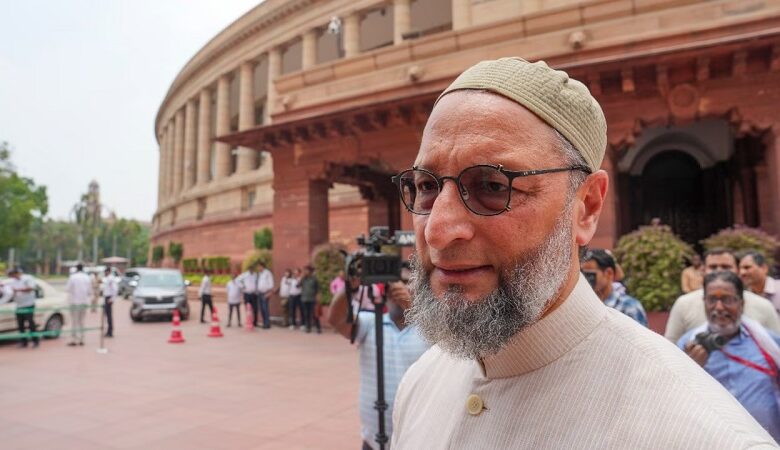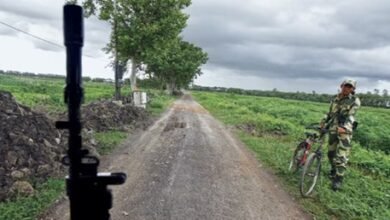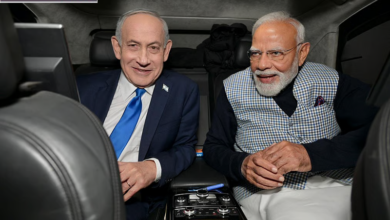AIMIM Chief Asaduddin Owaisi Condemns Ink Attack on Delhi Residence

News Mania Desk/ Agnibeena Ghosh/28th June 2024
After a group of men threw ink at his house in Delhi, AIMIM chief Asaduddin Owaisi strongly condemned the incident, calling it “Savarkar-type cowardly behaviour” and criticized Union Home Minister Amit Shah and Lok Sabha Speaker Om Birla for their inaction. Owaisi questioned whether they could guarantee the safety of parliament members.
Owaisi shared on social media that “unknown miscreants” had vandalized his house with black ink, noting that this was not the first time his residence had been targeted. Expressing frustration with the police, he mentioned their apparent helplessness in preventing such incidents.
He addressed Amit Shah directly, highlighting that these actions were happening under his oversight. He also called on Om Birla to clarify whether MPs’ safety would be assured, emphasizing the repeated nature of these attacks.
Owaisi remained defiant, stating that the attack did not intimidate him. He challenged those responsible to confront him directly instead of resorting to such tactics. “To the two-bit goons who keep targeting my house: this does not scare me. Stop this Savarkar-type cowardly behaviour and be men enough to face me. Do not scurry away after throwing some ink or pelting a few stones,” he declared.
In a related incident, Bahadurpura AIMIM MLA Mohammad Mubeen reported that the miscreants had chanted “Jai Siya Ram” while vandalizing Owaisi’s residence. He called on the government to investigate and take stringent action against those involved.
Additionally, posters demanding Owaisi’s suspension from the Lok Sabha were pasted outside his residence. The posters bore messages like “Bharat Mata Ki Jai,” “I stand with Israel,” and “Owaisi should be suspended.” These actions followed Owaisi’s controversial “Jai Palestine” slogan raised during his oath-taking in the Lok Sabha, which had already sparked significant controversy.
A police officer confirmed that efforts were underway to identify the perpetrators, with legal action promised once they were apprehended. However, no arrests had been made at the time of reporting.
Owaisi’s reference to Vinayak Damodar Savarkar, a pre-Independence BJP icon, aimed to draw a parallel between the attackers’ actions and what he perceives as a legacy of cowardly behavior associated with Savarkar. This remark underscores the political tension and ideological conflicts underlying the incident.
The attack on Owaisi’s residence is part of a broader pattern of hostility and violence that politicians, particularly those from minority communities or with dissenting views, often face in India. Such incidents raise serious questions about the security and protection provided to elected representatives, especially when their views or actions provoke strong reactions.
Owaisi’s response highlights not only his resilience but also his demand for accountability from those in power. The call for a thorough investigation and action against the perpetrators is crucial to ensuring that such attacks do not become normalized in the political landscape.In conclusion, the ink attack on Asaduddin Owaisi’s residence is a stark reminder of the volatile and often dangerous nature of political life in India. It underscores the need for robust measures to protect MPs and ensure that political disagreements do not escalate into acts of vandalism and intimidation.






